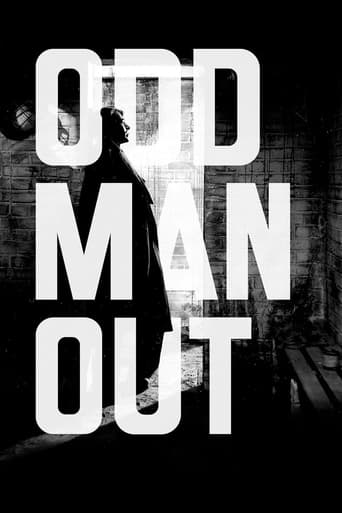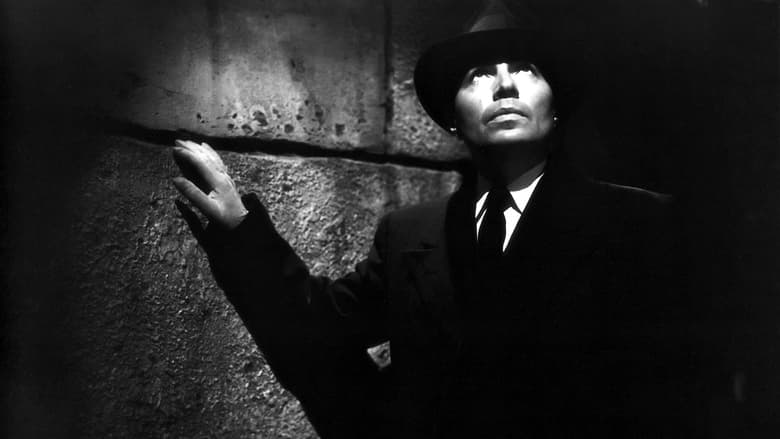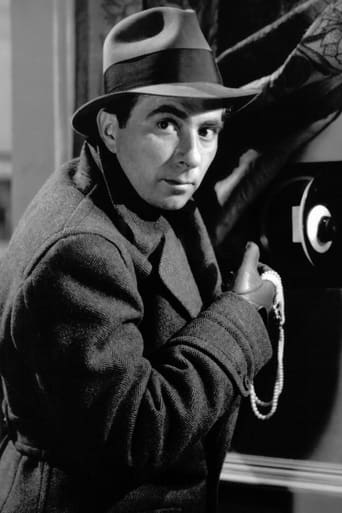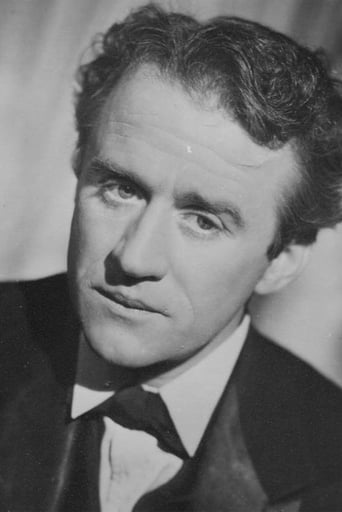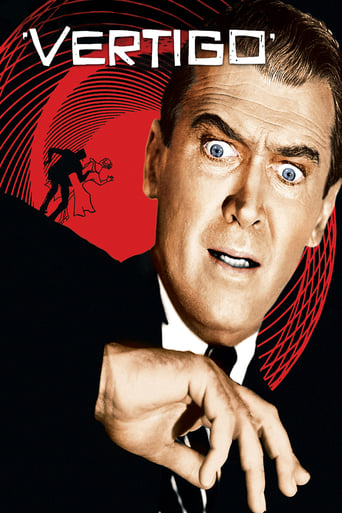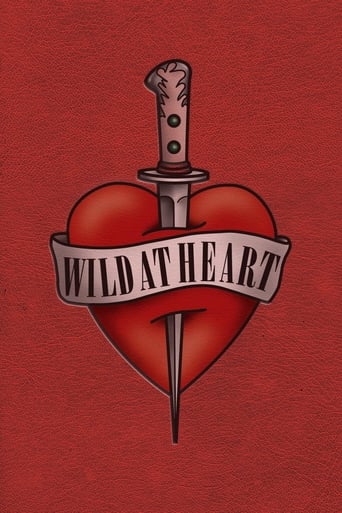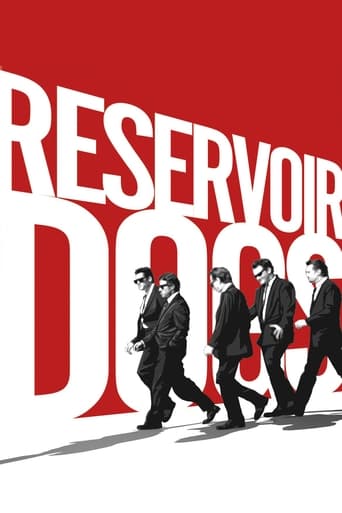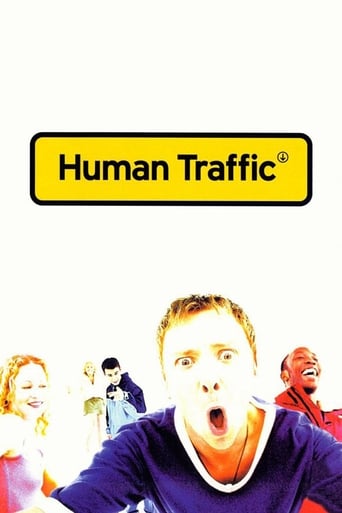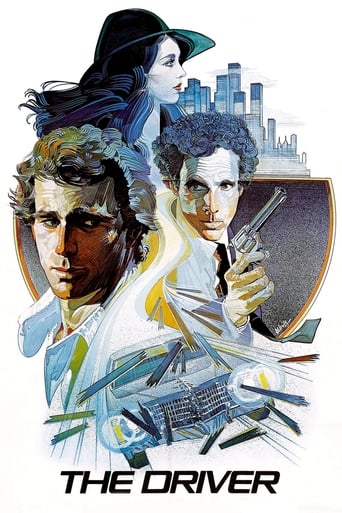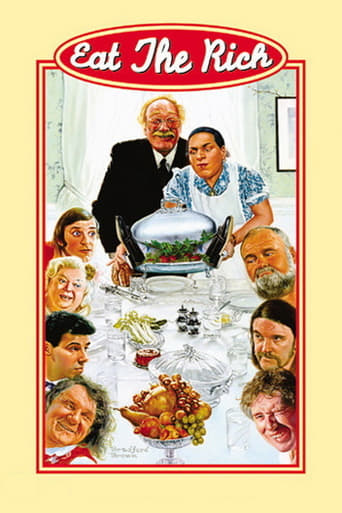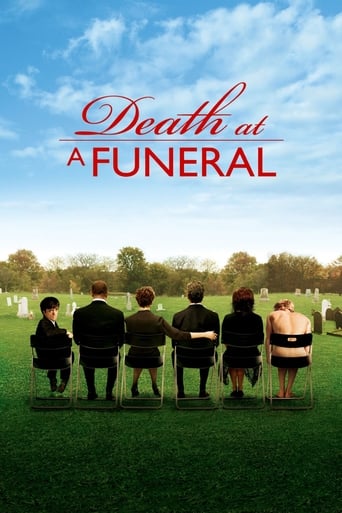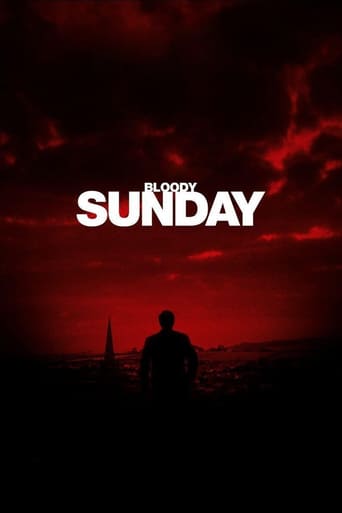Odd Man Out (1947)
Belfast police conduct a door-to-door manhunt for an IRA gunman wounded in a daring robbery.
Watch Trailer
Free Trial Channels
Cast


Similar titles
Reviews
A Brilliant Conflict
an ambitious but ultimately ineffective debut endeavor.
A lot of perfectly good film show their cards early, establish a unique premise and let the audience explore a topic at a leisurely pace, without much in terms of surprise. this film is not one of those films.
It is an exhilarating, distressing, funny and profound film, with one of the more memorable film scores in years,
This is the first of three films noirs, all containing the word "man" in their title, made by Carol Reed during the forties and fifties; the others are "The Third Man" and "The Man Between". It is the only one of the trilogy to be set in the UK, the other two taking place in continental Europe. The action takes place in an unnamed "Northern Irish city" (for which read Belfast) and features an unnamed "illegal organisation" (for which read the IRA). We may think of Northern Ireland's "Troubles" as something dating only from the late sixties, but the province was never entirely free of political violence after partition in the early twenties. It was a brave move to make a film about this subject in 1947, especially one which does not take sides politically, as the IRA were cordially loathed in Britain, not only for their terrorist activities but also for their openly pro-Nazi stance during the recent war.Johnny McQueen is a leading member of the organisation who has recently escaped from prison. He and his cell are ordered to rob a factory to obtain funds. The raid, however, is bungled and a cashier is killed and Johnny injured. He is forced to go on the run, while the police organise a manhunt. Various people, including members of his own organisation and his girlfriend Kathleen are also trying to find him, for various reasons.James Mason (who also starred in "The Man Between") is said to have regarded this as his best film, and others have held it in high esteem, Roman Polanski going so far as to call it his favourite film. It certainly has its virtues, but I have always felt that it also has its faults and I have never rated it as highly as "The Man Between" or Reed's masterpiece, "The Third Man".Most of these faults come in the second half of the film in which a number of people are searching for Johnny, and not always for the obvious reasons. Kathleen is looking for him because she loves him. A priest, Father Tom, wants to save his soul. A painter, Lukey, wants to paint him because of what he "sees in his eyes". Lukey's friend, Shell, is hoping for a financial reward, either from the authorities or from the organisation, for information about Johnny's whereabouts. Two old ladies take pity on him, but throw him out of their house when they discover who he is and what he has done, although they do not hand him over to the police. A barman takes a similar attitude. From around the halfway mark onwards Johnny, the dominant figure in the first half, fades out of the film, becoming a passive symbol- a symbol of whatever the other characters want to make of him- rather than an active participant in the drama. As a result, the film seems structurally unbalanced, a union of two halves which do not fit neatly together.Moreover, the acting is variable in quality. Robert Newton plays Lukey as the standard caricature of the artist as an eccentric, possibly mad, Bohemian starving in a garret. F. J. McCormick plays Shell as the standard caricature of the stage Irishman, full of the blarney and speaking little that makes any sense. And, like most stage Irishman, he has a Southern Irish accent. In fact, most of the cast sound as if they come from either England or Southern Ireland. Virtually nobody manages - or even attempts – a genuine Ulster accent.On a more positive note, some of the cast are better; I am thinking particularly of Kathleen Ryan as the faithful Kathleen and Denis O'Dea as a sympathetic policeman. The cinematography is excellent. Reed is able to conjure up a vision of Belfast- many scenes were shot on location in the city- as memorable as the visions of New York or Los Angeles conjured up by the great masters of American noir. We see the city in all its moods- the robbery takes place in bright sunlight, but later scenes were shot in shrouding fog or driving rain. The closing scene takes place in a snowstorm. There is also a fine dramatic musical score from William Alwyn.When I said that the film does not take sides politically, I meant that it is neutral on the question of whether Northern Ireland should remain part of the UK or be united with the Irish Free State (as it was in 1947). On the question of political violence I think it does take sides. Even early in the film Johnny finds himself at odds with his organisation- a possible explanation of the title- because he has come to believe that non-violent political action might achieve more than armed struggle. Although Johnny tends to fade out in the middle of the film, he returns to prominence at the end. He knows he is dying; if he does not receive medical treatment his wounds are likely to prove fatal, but if he goes to the hospital he will be arrested and hanged for the murder of the cashier.He begins to quote from that famous passage in St Paul's First Epistle to the Corinthians, including the words "Though I speak with the tongues of men and of angels, and have not charity, I am become as sounding brass, or a tinkling cymbal". He may be delirious, but in his delirium he gives voice to an idea which he has instinctively known, and has been struggling to express, since the beginning of the film, namely that the rhetoric of men of violence, including members of his own organisation, who lack charity in their hearts is hollow and worthless, of no more significance than a tinkling cymbal. Although this is not, in my view, Mason's finest film, it is nevertheless a fine, highly expressive, individual performance. 7/10
In the last scene of the film, Father Tom puts his arm around Shell's shoulder and they walk away together. The film then ends. Both actors died in 1947, the year the film was released. The N.Y. Times review was published three days before F. J. McCormick, the actor who played Shell, died of a brain tumor. For my money, his is the most accomplished performance in the film, which has always been one of my favorites. He was Olivier's choice for the role of First Gravedigger in his Hamlet, a role given to Stanley Holloway after McCormick's death. McCormick was in the original cast of Sean O'Casey's The Plough and the Stars, at the Abbey Theater in Dublin, and is said to have remarked when the audience rioted on the fourth night of the play's run, "Don't blame the actors. We didn't write the play."
ODD MAN OUT is unusual thriller that leaves a lasting impression. It is based on a somewhat neglected novel. Authentic scenery, great noir atmosphere and amazing this performance of major actor are the values of this film. It was exciting to watch noir in slightly different terms. The film appears quite a number of protagonists who are in some way connected with the main character. They are woven into the physical and mental suffering of the main character. In the end I wondered if "chase" the right word. By unifying concept, the story boils down to this. I think it is still more appropriate term "escape to the final knowledge", because the main character in every way trying to escape, and every time returns to the beginning.To make it more dramatic, emotional and visual expression is complemented a great atmosphere in the form of darkness, rain and snow. It is natural that a man who runs away and no way to flee, driven into a corner, physically and emotionally drained, starts to question the philosophy of life. It is interesting that the other characters through the tragedy of the main character trying to make sense of faith, love, family, profession ....Johnny McQueen (James Mason) is a fugitive and frightening illustration of human suffering, agony and nausea. The drama is not based on justice or morality, but on the suffering human being.One compelling, intriguing thriller and a real experience of noir.
After having greatly enjoyed director Carol Reed's fantastic Film Noir The Fallen Idol,I was pleasantly caught by surprise,when a very kind IMDb'er sent me a DVD of a Reed film that I had never heard before.With The Fallen Idol still being on my mind,I excitingly got ready to see Reed track down the odd man out.The plot:The plot-Northern Ireland:Staying underground for 6 months after breaking out of jail,Johnny McQueen decides that he will make his first public appearance by joining up with his fellow gang members to rob all of the money from a mill,which Johnny and the gang plan to use as a way to continue to fund their underground activates.Ignoring his fellow gang members clear unease about him not being ready for the challenge, (partly due to him having recently expressed doubts that violence may not be the best way for the gang to achieve their goal)McQueen and the gang set off to rob every penny from the mill.Sucsessfully getting hold of all the cash,Johnny and the gang rush to the entrance door to make their escape.Sadly for McQueen,a cashier gets hold of him and shoots him in the arm,which leads to Johnny fighting back, (despite having to deal with intense pain from the shot) and accidentally shooting the cashier dead.Terrifyed that their leader has lost all sense of time and place,the gang quickly pull McQueen into the back of their getaway car,and head off to their near by safe house.Arguing amongst themselves over what has just taken place,the group fail to hear Johnny fall out of the car.Finding himself completely alone with the blood draining from his body,McQueen realises that he is going to have to do everything possible to stop the townspeople and the police from discovering him as the odd man out.View on the film:Bringing his own novel to the screen with writer R.C.Sheriff,F.L. Green, (who sadly died at age 50 in 1953) smartly takes a neutral position which never glamorises McQueen and his gangs activities,whilst also showing the police to be less then sharp minded,that allows the viewer to form their own opinion on McQueen and the cops who are on his trail.Along with making McQueen's chase from the police being one that goes farther and farther down a enclosing,mud filled alleyway,Green also brilliantly makes each of the distinctive supporting characters fully dimensional by placing each of them in the cross hairs between McQueen and the police,which leads to each of them being deeply torn between doing the "right thing" and reporting McQueen's whereabouts to the cops,and helping their former friend to remain buried within the starless night of the cities underbelly.Closely focusing on the psychological effects that the blistering mill robbery has on Johnny McQueen's mind,director Carol Reed and cinematography Robert Krasker, (who also worked on Reed's The Third Man)use extraordinary special effects to place the viewer in McQueen's dazed,confused and disorientated mind,with Reed and Krasker pushing the effects at the front of the movie at the precise moments that McQueen finds himself struggling to decide on what is real,and what is a figment of his fear driven imagination.Soacking the movie in a black sky laden Film Noir fog,Reed scatters the second half of the movie,in a never ending,extremely stylish snowfall,which along with showing that the snow is unable to hide McQueen and the police's less than "pure" features,also creates a strong sense of a dark,cold atmosphere engulfing the character's lives,with Reed increasing the pressure and continuing to let the snow fall as the character's imperfections are suffocated in the excellent down beat,snow covered ending.Backed by a tense score from William Alwyn, (who also did the score for Reed's Film Noir The Fallen Idol) and joined by a fabulous supporting cast that includes a firm William Hartnell and a stunning Kathleen Ryan,James Mason, (who would reunite with Reed for the 1953 Film Noir The Man Between) gives an extraordinary performance that rips open McQueen's scrambled mind.Being on his own for a good amount of the movie and also being given a minimum of dialogue,Mason uses his astonishingly subtle body language to show the deep rooted destruction take place in McQueen's mind,as Mason goes from showing McQueen brimming with confidence as he rejoins his gang,to realising that there is nothing at all that he can do,to stop from being discovered as the odd one out.

